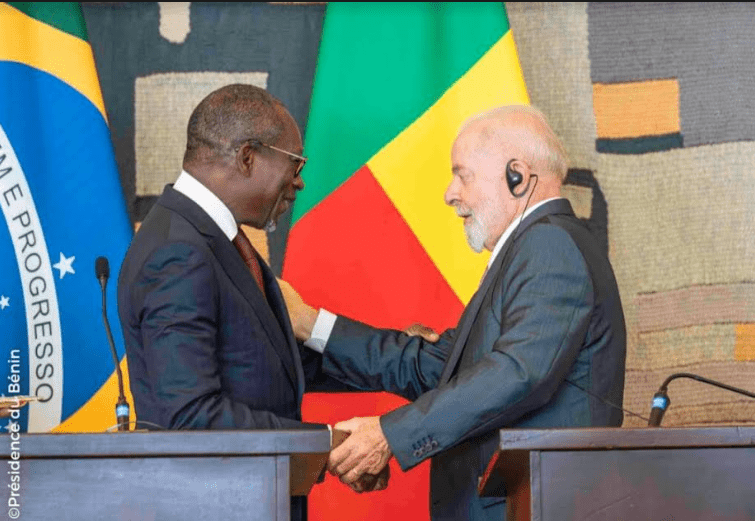Both leaders highlighted key areas for collaboration, including agriculture, vocational training, cultural exchange, tourism, air travel, defense, and development financing. They emphasized a desire for this partnership to be a model of South-South cooperation, promoting a fairer and more multilateral world order.
Several agreements were signed during the visit, covering aviation, diplomacy, tourism, arts, and agriculture. These aim to strengthen ties between public and private sectors, fostering fruitful exchanges.
Brazil pledged its expertise and support for Benin’s agricultural development, facilitating trade in genetic materials. This collaboration targets food security and rural growth in Benin.
Education and cultural ties were also emphasized. Student exchanges and partnerships between universities will be encouraged. The Sèmè City campus project exemplifies this commitment to fostering innovation and economic development through education and vocational training.
The leaders agreed to work together for a sustainable and inclusive tourism industry. Measures to facilitate Brazilian investment in Benin’s tourism sector are envisioned.
Defense and maritime security cooperation will be strengthened to combat piracy and ensure safe shipping lanes in the South Atlantic. Additionally, both countries support the creation of a whale sanctuary in the region.
Finally, Benin and Brazil pledged to collaborate on hydrocarbons and energy, prioritizing sustainable development and renewable energies. Initiatives include discussions on Benin’s oil and gas potential and the development of bioethanol from agricultural waste, reflecting a commitment to a just energy transition.
AC/fss/abj/APA


